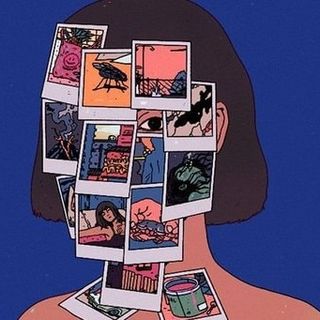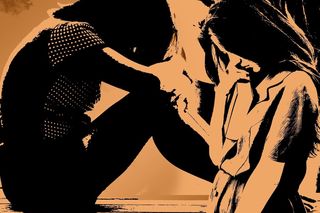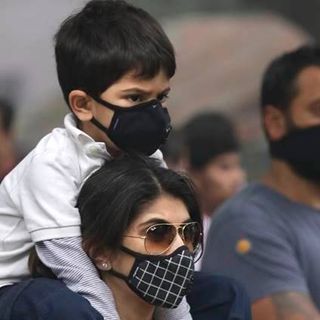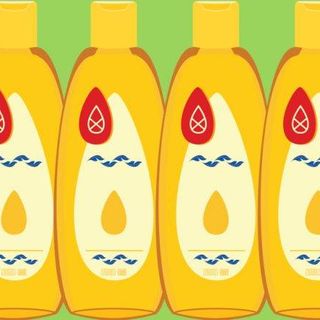
Few Parents Recognize Post‑Adoption Depression; Fewer Know Where to Get Support
You don’t have to be a biological parent to experience the baby blues.

Soon after Mathangi Subramanian, 39, living in Washington, DC, and her partner adopted an 8-month-old baby in 2016, she “felt sad all the time, lethargic, and depressed. I had trouble sleeping and my body ached. I also felt irrationally angry, which was something that I didn’t expect,” she recalls.
Nine months of pregnancy, hours of labor and breastfeeding, and hormone fluctuations aren’t the only prerequisites to experiencing depression after the arrival of a child; parents can experience depressive symptoms in the period following an adoption, too. In 1995, June Bond, an adoption professional, coined the term Parental Post-Adoption Depression (PAD) to describe symptoms such as depression, anxiety and panic. While PAD has been relatively under-researched and under-reported in the two decades since, various studies suggest that between 10 and 32 percent of adoptive parents report depressive symptoms.
The problem in India is whom to report them to.
Related on The Swaddle:
Indian Adoption Body Allows Live‑in Couples to Be Parents
“I distinctly remember having blues after I adopted my first daughter. I would sit on the bed and cry, looking at her, wondering how I’d be able to cope with another addition, despite having an amazing support system,” says Dr. Aloma Lobo, a sexagenarian in Bangalore and the mother of three adopted children. Lobo’s perspective on this issue is professional, as well as personal. As the former chairperson of the country’s Central Adoption Resource Authority (CARA), and with 30 years of experience working in the field of adoption, she observes that the dissonance between pre- and post-placement expectations can cause depression, especially among first-time adopters. For instance, she says, “It is very normal to not feel instant love or connection when they first see the child. However, many adopters beat themselves [up] over this and think they need to feel something for the child at first sight.”
While postpartum depression research is widely seen as applicable to PAD, the two differ in important ways. Postpartum depression, which research is showing actually begins during pregnancy, is thought to be caused by hormonal fluctuations compounded by post-delivery pain and the stress of new parenthood. PAD, by contrast, is all about experience, not biology. In addition to universal new-parent challenges, such as the adjustment to new responsibilities and lack of sleep, the seemingly biggest factor contributing to PAD is the 180-degree aftermath of lengthy adoption procedures.
“The system is such that when a referral is made, the adoptive parents get two days to confirm that they will take the child,” says Gayatri Abraham, 48, an adoptive mother living in Bangalore.
This leaves parents little time to prepare for parenthood.
“Through the nine months of pregnancy and associated hormonal changes, nature has a way of preparing you for childbirth and child rearing. In the case of adoption, the addition to the family happens quite suddenly,” says Srobona Das, 48, a Bangalore-based adoptive mother of an 8-year-old.
“We felt quite alone during the week it took to finalize the adoption,” remembers Subramanian.
For some, adoption is a decision pursued after the biological possibility of having children has been exhausted. In India, societal attitudes toward infertility, which see married couples without children as ‘incomplete,’ can induce feelings of inadequacy that color parents’ post-adoptive mental health, too.
In spite of how common the factors that contribute to PAD are, doctors say few actual cases are reported. Dr. Jalpa Bhuta, a psychiatric consultant in Mumbai who specializes in women’s mental health, says she has not encountered a single case of PAD in her 16 years of practice. “There is simply no awareness of this phenomenon in India. It is only now that parents who experience postpartum depression are speaking up and seeking professional help,” she says.
“A lot of it has to do with stigma,” says Dr. Lobo. “There is a lot of emotional turmoil, wondering if you are cut out to be a parent. Some people might not even confide in their families or friends because they are scared that they may be seen as ‘not fit to be a parent’ or even be reported to the adoption agency or orphanage.”
Related on The Swaddle:
Know Your Rights: Adoption In India
But part of the low prevalence of post-adoption depression is related to a lack of recourse. While postpartum women have a relationship with a doctor who, in theory, should be on the lookout for the signs of postpartum depression, adoptive parents are largely on their own. In 2017, reforms framed by CARA streamlined the in-family adoption process at a national level, but personnel and resources are still too strained by the workload to provide specialized psycho-social support to new parents. “CARA did not give us any kind of training in terms of mental health support, and I think having some would have helped,” says Subramanian. “Our social worker was lovely, but she was intensely overworked, and really could only come to check in to make sure we were taking care of our daughter. She didn’t really have the time to answer my questions. I don’t blame her — she was wonderful, and I think that she would’ve helped if she could have.”
Adequate pre-adoption preparedness can go a long way in preventing mental health challenges for prospective adoptive parents, says Abraham, who was moved by her adoption experience to start Padme, an adoption discussion forum that also provides workshops and readiness counseling for adoptive parents.
“We highlight the emotional challenges [new parents] may face, offer intensive instruction on parenting, particularly in the early days, and speak about how to speak about the adoption to family, friends and the child,” she says.
Das, who attended such a pre-adoptive workshop held over two weekends before adopting her daughter, says, “It was the best thing my husband and I did in the run-up to the arrival of my daughter. The workshop covered everything: sleep deprivation, the dynamics that change in a marriage on the arrival of a child, the emotional roller-coaster and the nervousness you will feel about whether the child will accept you.” Das now informally counsels other pre-adoptive parents and has started a thriving but closed Facebook group called ‘For & Of Heart Babies,’ wherein prospective and newly adoptive parents discuss their struggles and concerns with other adoptive parents.
Subramanian remembers the isolation as an adoptive parent.
“I didn’t find people I could talk to, mostly because our friends were biological parents who didn’t understand the unique challenges we faced, particularly in terms of attachment,” Subramanian says. “I got most of my information from webinars or books, but I was often panicked that I wasn’t doing the right thing or was ignoring issues just because I didn’t know about them.” All she needed, she says, was a little support.
Hamsini Ravi is a writer and non-profit communications specialist. When not at work, she’s busy reading, traveling, cooking or playing with her three-year-old.
Related


Air Pollution Is Shortening the Lifespan of South Asian Kids
